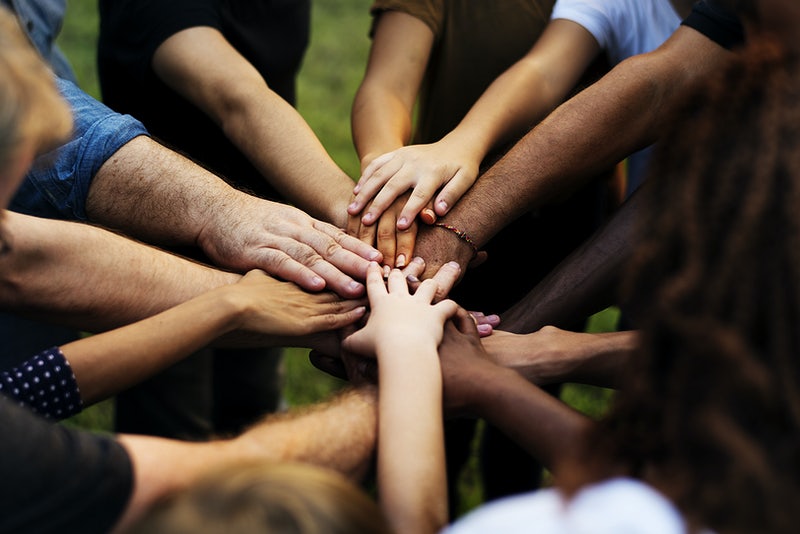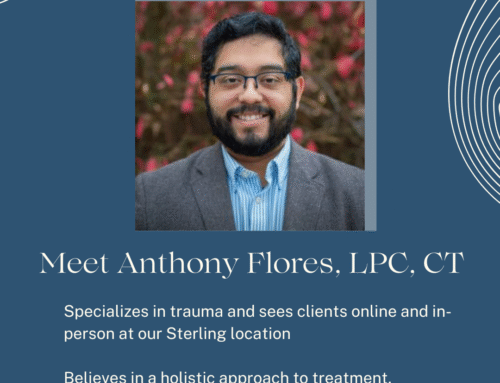For the past fifteen months, we’ve all been in survival mode. While the specific details of our lives may vary, the way we have been living during this time has most certainly taken a toll on us. Regardless of the reason, being forced to suddenly adapt to almost every aspect of our lives is very taxing on the human nervous system. Additionally, the pandemic occurred at a time in history when there were already high levels of emotional isolation and loneliness. As we see things start to go back to some kind of normal, the lasting impact of these events and our response to them will likely linger. With this in mind, I think it’s important to state that we need each other now more than ever. We need to re-establish our communities and reawaken the fullness of our humanity. The only way out is through this together.
Life in the Information Age
Prior to the pandemic, social isolation and loneliness were identified as a public health crisis. Recent research has suggested that this correlates with increasing use of and reliance on technology. It is hard to adequately capture the changes that have taken place in the Information Age. There have been unprecedented shifts in how we live our lives, the likes of which haven’t been seen since the Industrial Revolution. This has led to a more transient and socially isolated society overall. As populations change more rapidly, our communities are not as stable. Additionally, we continue to replace real-life interactions with virtual engagement.
These sudden and drastic changes in lifestyle have placed more pressure on our primary relationships. With limited options available, it is inevitable that we will learn even more on those close to us. This type of pressure can strain the few reliable relationships we have. Unfortunately, disrupting the stability of these bonds carries with it the risk of further increasing emotional isolation. To be clear, this isn’t intentional, and no one is at fault. This is a natural side effect of societal changes that haven’t sufficiently taken into account the relational needs of the human person.
Enter the Pandemic
It should be no surprise to any of us that the pandemic has only exacerbated these issues. Quarantines, social distancing, masks, and limited social events reinforced emotional isolation and disconnection. This applies to everyone, regardless of what you think about the pandemic. Our biology is very susceptible to influence from outside signals; emotion itself is contagious. This means that even if we tell ourselves that we aren’t scared or don’t need to worry, our bodies will still respond to the signals all around us. Our bodies have likely carried the weight of feeling threatened or fearful for the past fifteen months or more. This is absolutely exhausting and will likely continue to impact us even as we return to normal activities.
Keeping track of these lingering effects will be an important part of adjusting to post-pandemic life. The following list will not be exhaustive and will vary from person to person but generally speaking, here are some things that you may experience:
- Heightened fear, anxiety, or worry
- Lower tolerance for stress
- Lower energy levels/less capacity to function at pre-pandemic levels
- Reduced level of motivation or interest in enjoyable activities
- Anxious pursuit of enjoyable activities/Hyperactivity
- Feeling disconnected from others
- Feeling lonely even when spending time with others
- The tension between wanting to see others and staying home/isolating
- Emotional numbness
- Heightened awareness of previously unknown emotional distress
Many of these lingering effects are related to being in “survival mode”. This mode refers to the way human beings cope when feeling threatened or fearful. During these times we will focus on avoiding danger, minimizing risks, and protecting ourselves. This can feel restrictive and rigid at times, often limiting our naturally curious and exploratory nature. Regaining our sense of emotional balance will be a top priority. This will help establish or regain a rich and full life.
It will be important to give yourself time to adjust. If you notice any of the effects mentioned above, it will take time for your body to find a new equilibrium. Remember to pace yourself, balancing your current capacity with slowly moving outside your comfort zone. It may be helpful to track how you’re responding and regularly take inventory of your energy levels. Expect ups and downs and varying degrees of change. This is neither good nor bad but rather part of being human. Lastly, it will be essential to find support and connection with those closest to you.
The Importance of Relationships for Recovery
“Our social relationships are widely considered crucial to emotional well-being; however, the possibility that social connection may be a biological need, vital to physical well-being and even survival, is commonly unrecognized” (Holt-Lunstad, 2017)
We are continually learning more about the link between relationships and overall well-being. According to one study in the Journal of Psychosomatic Research, the risk of death from any cause increases by 35 percent (and by 70 percent from cancer) when you don’t talk about your emotions. Needless to say, the quality of our relationships, specifically how connected we feel, has a significant impact on us. Since emotion is the messenger of love, our connection is directly related to our ability to be vulnerable with those we love. This is even more crucial during times of distress.
Emotional isolation is inherently traumatizing for human beings. We are relational creatures by nature; our need to be deeply connected to those around us is hard-wired into our way of being. Scientifically, this is observed in the way our nervous system prioritizes emotion and its role in seeking and maintaining closeness with others. In fact, our sense of self (identity) is actually established by relating to others. In the words of Susan Johnson, “We decide who we are when we look into the eyes of the people we love.” This really speaks to the importance of building and maintaining relationships as the core aspect of health and well-being for humans.
Spiritually, this is emphasized by the Church’s teaching on the Mystical Body of Christ. We are called to be in communion with the entire Church. Participating in this communion is designed to bring us face to face with God so that we may see our true value and worth in His eyes. He knows more about us than we will ever know so we can take comfort in Him and His divine plan for us.
Building a New Normal
While it may be tempting and certainly understandable to jump back into life, my hope is that we don’t “return to normal”. Our “normal” pre-pandemic was already troubling; we were facing a public health and mental health crisis because of the way we were living our lives. The past fifteen months seem to have put an exclamation point on our need for change. Perhaps we can use this terrible situation to fuel new efforts to build flourishing networks of relationships. Perhaps we can learn to make space for our vulnerability and reach for one another in our struggle. Perhaps we can honor our need for human connection and acknowledge how alone we have felt. I’d like to end with a poignant quote from Susan Johnson:
“We work with the fact that we’re human beings. We never outgrow the need for validation and to be seen and accepted in our vulnerable places, in all places, by someone we love. And if we don’t have that, we’ve only got so many other ways to cope. And this is the complete antithesis to what we have been taught and what our society believes, which is that once you reach the age of 12, you’re not supposed to need anybody’s approval. You’re supposed to be this little, contained, self-defining, individuated, separating, independent autonomous little being, which of course is rubbish. I’ve never met a human being like that.”
– Jonathan Dixon, LMFT
Jonathan Dixon is a Licensed Marriage and Family Therapist in Virginia who has offered mental health services at Alpha Omega Clinic’s Fairfax office since 2013. He is an active member of the Association of Marriage & Family Therapy. He also seeks to inspire healing and wholeness through reflections on Instagram @deepspeakstodeep.





